Donald Trump accidentally admits he is ineligible to be President
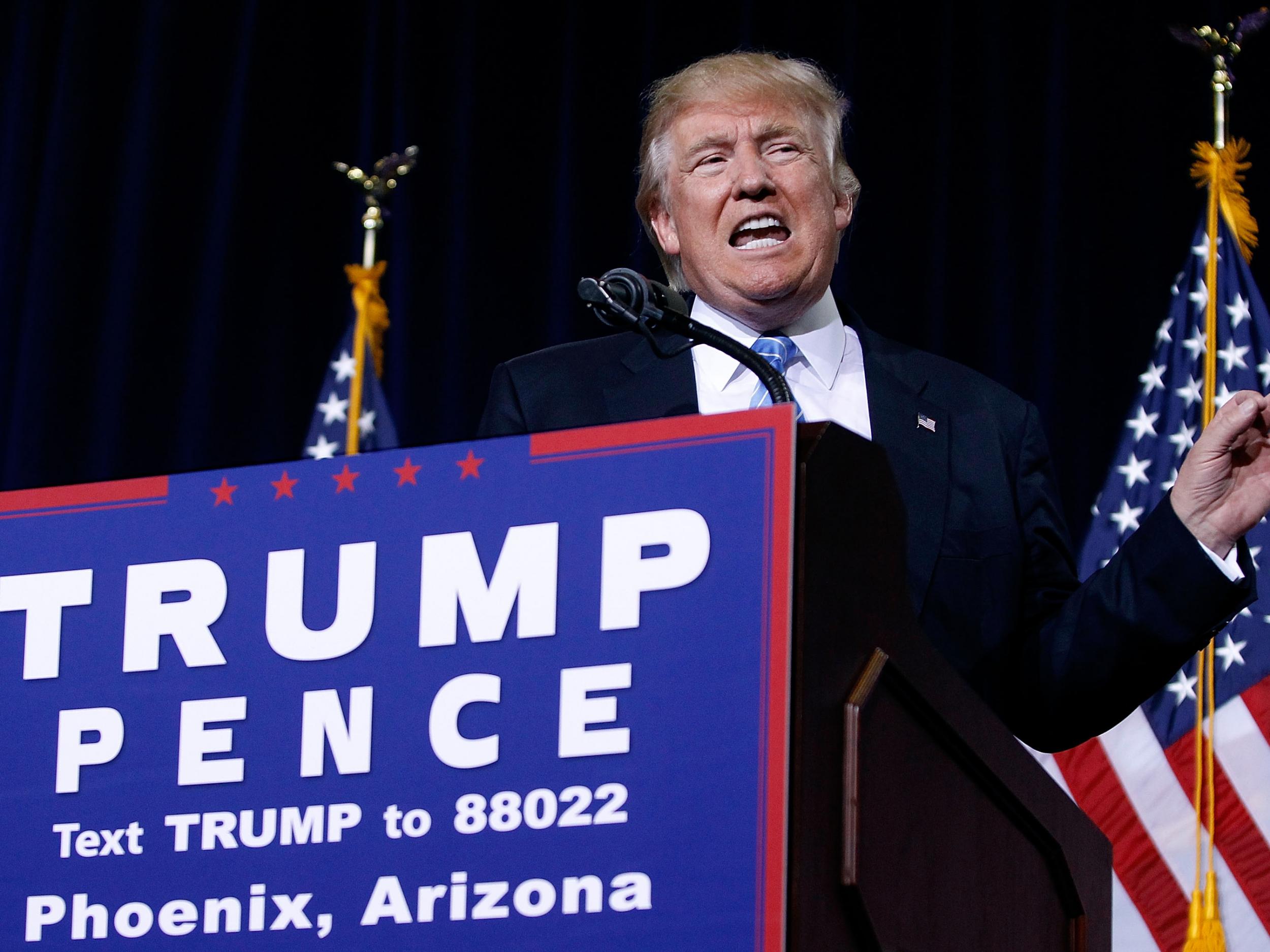
Your support helps us to tell the story
From reproductive rights to climate change to Big Tech, The Independent is on the ground when the story is developing. Whether it's investigating the financials of Elon Musk's pro-Trump PAC or producing our latest documentary, 'The A Word', which shines a light on the American women fighting for reproductive rights, we know how important it is to parse out the facts from the messaging.
At such a critical moment in US history, we need reporters on the ground. Your donation allows us to keep sending journalists to speak to both sides of the story.
The Independent is trusted by Americans across the entire political spectrum. And unlike many other quality news outlets, we choose not to lock Americans out of our reporting and analysis with paywalls. We believe quality journalism should be available to everyone, paid for by those who can afford it.
Your support makes all the difference.Donald Trump's prepared remarks generally serve less as railroad tracks than as aviation waypoints. They're not the unswerving path he takes as he gives a speech at a rally, they're place he wants to get to -- but, as long as he's close, that's good enough.
In Greenville, N.C. on Tuesday night, Trump was supposed to criticize Hillary Clinton for telling the FBI that she couldn't recall details of her email server setup. "Hillary and her top aides told the FBI and others in related lawsuits that they couldn’t recall or remember key facts hundreds of different times," Trump was supposed to say, according to speech excerpts.
What he actually said was in that vicinity. But it also flew into some tricky territory.
"Hillary and her top aides told the FBI and others related in the lawsuits that they couldn’t recall or remember -- can't remember anything!" Trump said. "By the way, if she really can't remember, she can't be president! She doesn't remember anything! She doesn't even remember whether or not she was instructed on how to use emails. 'Were you instructed on how to use?' 'I can't remember.'"
Why's that tricky? Because asserting that Clinton can't be president if she doesn't remember details in an interview would mean that Trump, too, is ineligible for the nation's highest office. Big league.
As part of The Post's research for our biography of the Republican nominee, we compiled hundreds of documents from Trump's past. Among those were a number of depositions from a tiny portion of the thousands of lawsuits to which Trump has been a party over the years. And in those depositions? Constant assertions by Trump that he couldn't recall or didn't know the answers to questions offered him.
We can isolate one particular deposition as evidence of this: His Sep. 2012 deposition in a lawsuit regarding Trump University, the real estate training seminar series that has been the subject of fraud allegations and investigations by attorneys general in multiple states.
Over the course of that one interview, Donald Trump says that he doesn't know the answer to a question hundreds of times. He claims not to recall details related to questions dozens more.
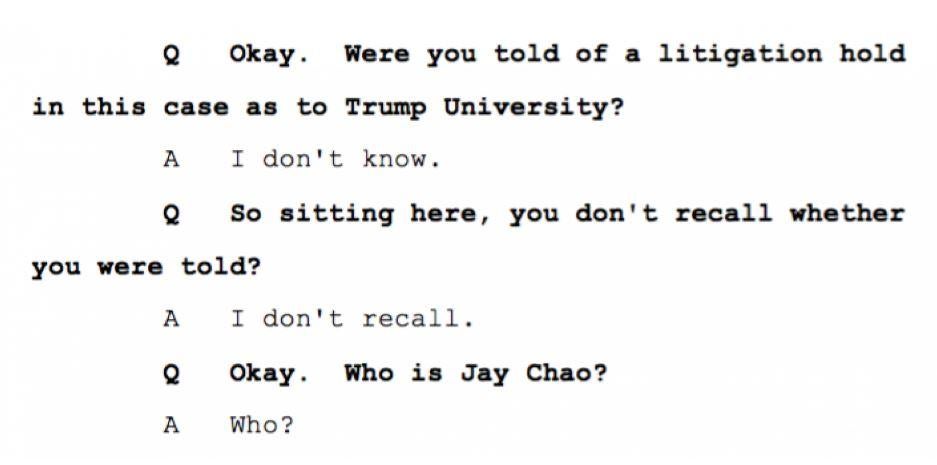
Asked if he attended one of the program's seminar in Florida, Trump says he did. When? Years ago. What year? Doesn't remember. Who were the instructors? He didn't remember. What did they talk about? "I can't remember specifically." Was this Trump Institute, the Florida iteration of Trump University? He didn't know. Did he remember the format of the presentation? He didn't. Pressed for any detail he remembered, Trump offered one: "The only detail, as I left, I was very impressed."
That's from one page of the 600 pages of testimony.
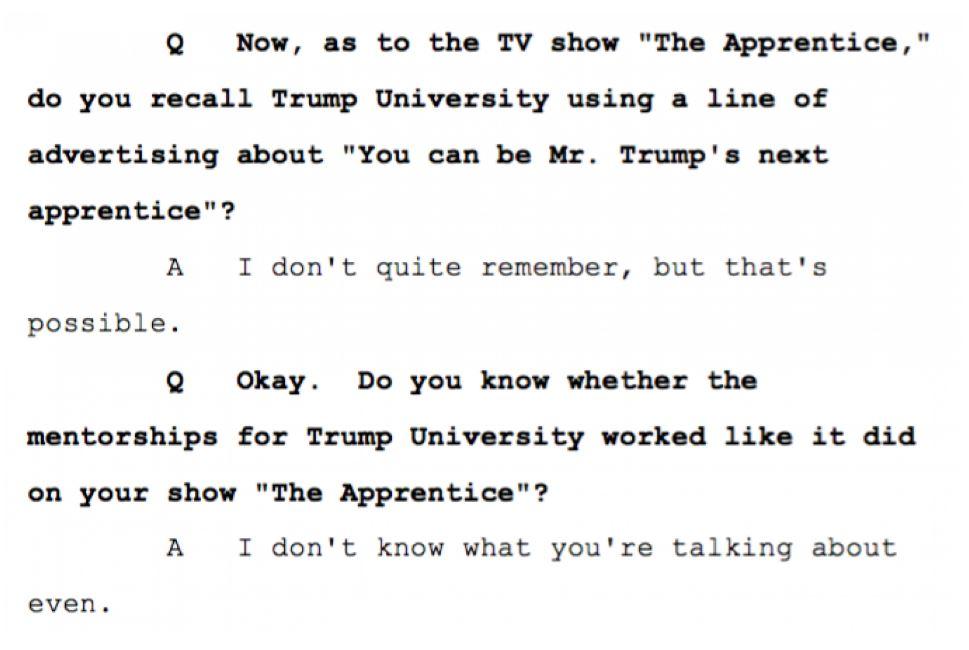
Things he didn't remember that were related to Trump University:
- When discussions about Trump University began.
- The format the initial courses took.
- The names of any of the courses.
- Seeing the resumes of course instructors.
- Why the licensing agreement for Trump Institute ended.
- If attendees got a degree.
At one point, Trump was asked if he remembered the names of any of the instructors who provided instruction at Trump University -- a group that the organization had touted as being hand-picked by Trump. "Can you identify a single person who was a live events instructor for Trump University?" the attorneys for the plaintiff asked Trump. "You'd have to give me a list," Trump replied.
So they did.

It continued.
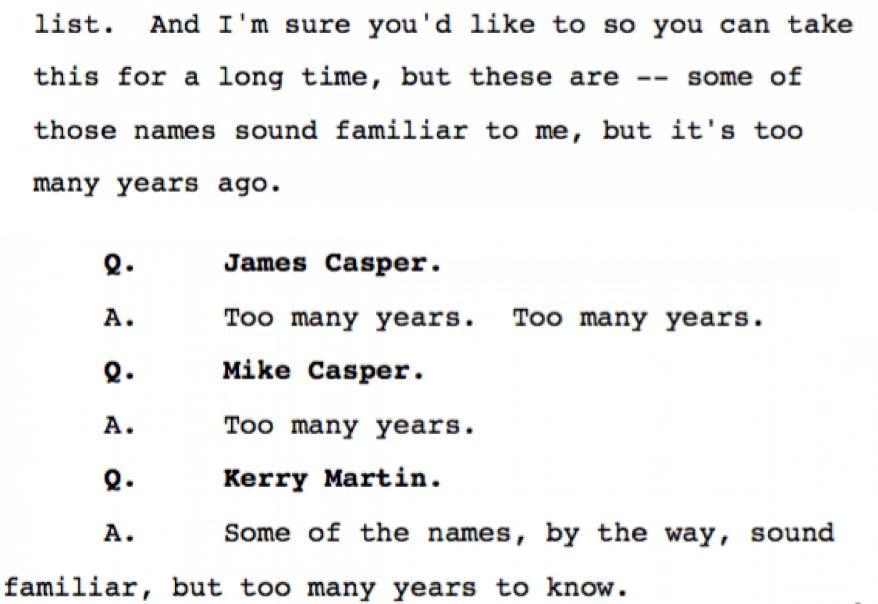
And continued.
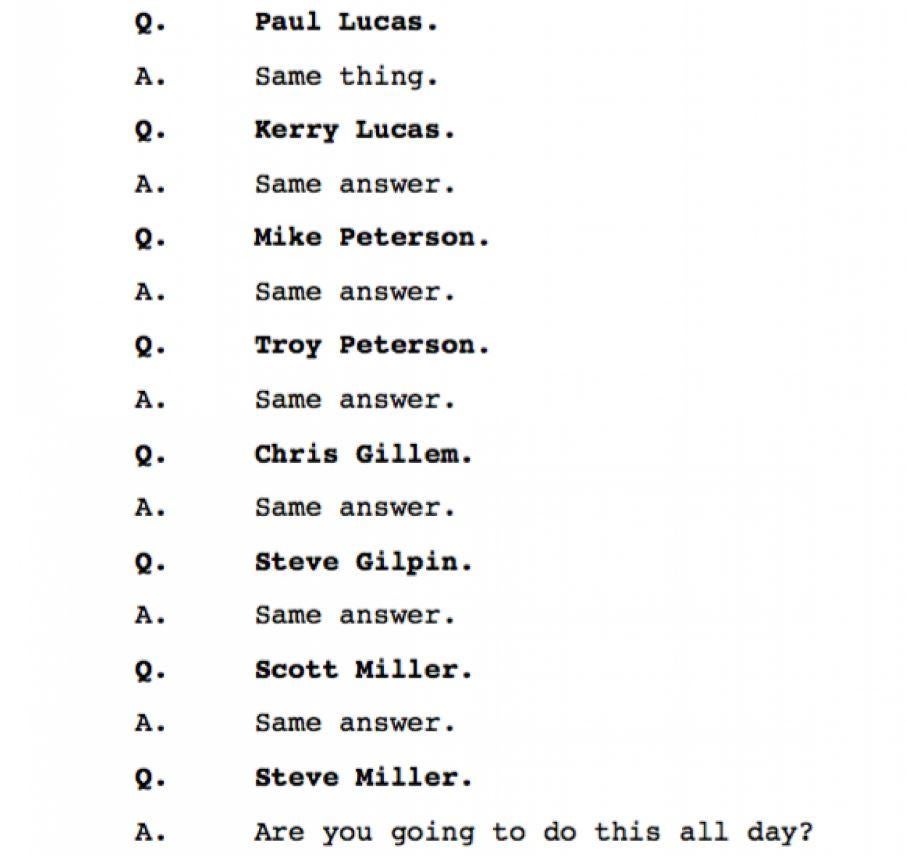
Page after page, same response. The attorneys tried a different tactic, presenting Trump with photos of people and asking him if they recognized the pictures. He didn't.
(One interesting little detail from that deposition: Trump didn't remember Trump University having a blog -- which it did. The blog has been a source of some embarrassing reversals, such as when it said that Hillary Clinton would be "a great president or vice-president." In the deposition, Trump said he did remember who wrote the blog posts: Meredith McIver, the woman who was blamed for Melania Trump's plagiarized Republican convention speech.)
And then there was this.
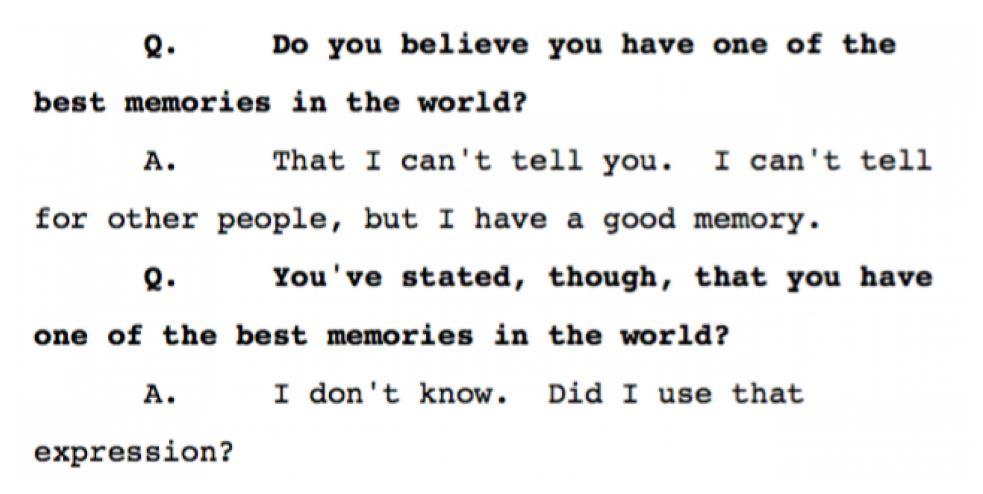
This is one deposition. Similar responses are littered through the other Trump documents: Failures to remember meetings, business deals, individuals, if he signed documents. When asked how many times he'd given testimony, Trump figured it was in the hundreds; in each of those hundreds of depositions and interviews, it's almost certainly the case that Trump was stymied on obscure details any number of times.
That Trump couldn't recall particular individuals who may or may not have worked for him or details of how Trump University was put together is not, of itself, disqualifying for the presidency. Nor is it the case that Trump's insistence that he couldn't remember those details implies that he has broader memory issues. In some cases, Trump couldn't remember the details because the lawyers were asking very specific questions about long-past incidents (like walking through his daily calendar from years before). In other cases, Trump was clearly trying to gloss over unflattering information.
But we aren't the ones that suggested that saying you didn't remember details when being questioned was the sort of thing that should render someone unfit for the nation's highest office.
The moral of the story? People who literally live in big glass towers should be careful where they throw stones.
Copyright: Washington Post
Join our commenting forum
Join thought-provoking conversations, follow other Independent readers and see their replies
Comments